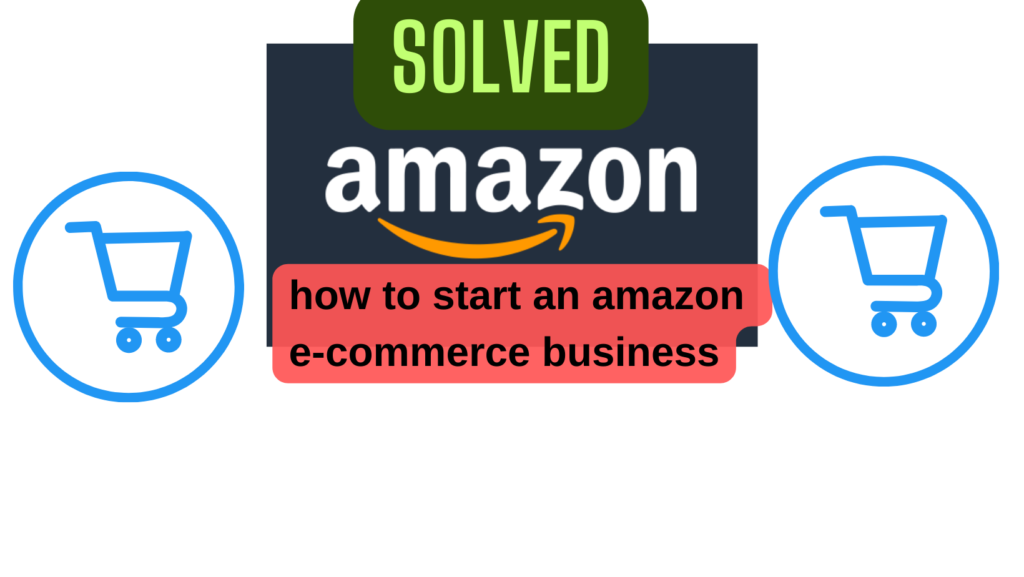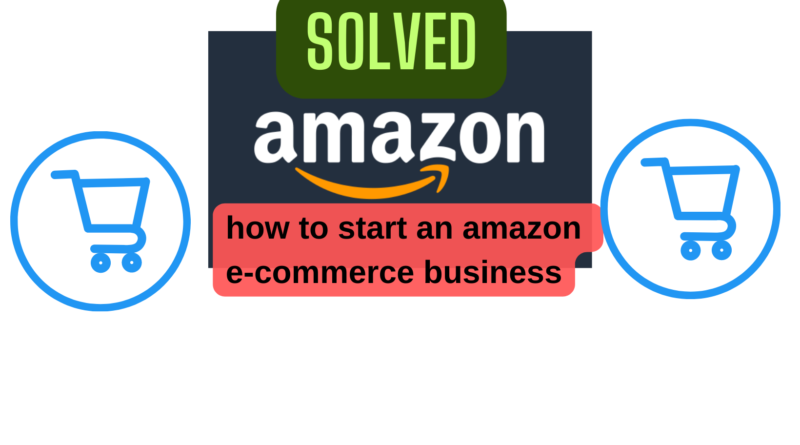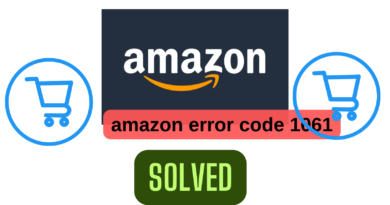How to Start an Amazon E Commerce Business SOLVED

Amazon is an enormous e-commerce company with an expansive online shopping platform. Every day, billions of people browse Amazon in search of everything from Nicolas Cage pillowcases to the latest best seller book, spending an average of over six minutes and viewing nine pages during each session. Amazon operates under four principles that guide its business practices: customer obsession rather than competitor focus; passion for invention; commitment to operational excellence and long-term thinking – leading to a fluid company which prioritizes customers while testing out new product lines, services or even whole businesses like AWS (Amazon Web Services).
Amazon’s business model is built upon two-sided network effects that allow them to dominate the market by offering unrivaled product selections and providing superior fulfillment services, creating a positive feedback loop which increases user engagement and increases product availability at reduced prices. Not only has this allowed Amazon to expand their e-commerce business exponentially but it has also allowed them to branch out into additional profitable areas like Prime memberships, third-party seller services and advertising – thus diversifying Amazon into multiple profitable niches and increase profits overall.
While the internet has revolutionized how we purchase goods and services, e-commerce business models have existed for decades. One of the first e-commerce transactions took place in 1984 when 72-year-old British grandmother Jane Snowball used a device known as Videotex to order eggs, margarine, and cornflakes from her local grocery store over her telephone line using Videotex.
Since then, the world has transformed itself digitally, and online shoppers have become an indispensable component of daily life. By 2022, global e-commerce sales are expected to reach $294 trillion, representing 16% of retail spending globally.
No matter the nature of e-commerce business you plan to launch, it is vital that you understand its fundamentals before embarking on any strategy. Beyond knowing technical jargon about online commerce, it is equally essential that you gain an in-depth understanding of how your enterprise will generate revenues while complying with regulations.
Selecting an Amazon business model tailored specifically to your needs depends on various considerations, including your product or service offering and available capital. Wholesale arbitrage is often an attractive option for new entrepreneurs as it requires minimal startup costs but yields considerable profits; however, this model may involve greater risks due to larger initial inventory investments required.
Launching an Amazon ecommerce business can be an excellent way to break into the fast-growing ecommerce industry, offering physical or digital products for sale to millions of shoppers across various categories such as groceries, electronics and clothes – offering plenty of room for growth! However, before getting underway there are a few factors you should keep in mind before beginning this endeavor.
First and foremost, make sure you have a comprehensive business plan. This will allow you to determine what kind of licenses and permits are necessary for running your business as well as set financial goals and estimate how much it’ll cost to get up and running successfully. Furthermore, consider your competition and how your product or service compare with theirs on the marketplace.
Once you have a comprehensive business plan and supporting documentation in order, it’s time to open your seller account on Amazon. This step takes time, as Amazon requires several details about your business including legal name, address and contact info; list of products with UPC numbers or SKU numbers you intend to sell; accept terms and conditions and submit tax numbers before creating the account.

Register your brand with Amazon in addition to creating a seller account, as this will protect it from counterfeiters and open access to various other tools that can help expand your business. Sellers registered in the registry receive notification whenever their products are counterfeited by other sellers; additionally, there are tools that enable them to keep tabs on competitors’ activity and enhance marketing campaigns for themselves.
Search engine optimization (SEO) is another effective way of marketing your Amazon ecommerce store. By optimizing product pages for Google searches and increasing customer visibility, SEO increases customer acquisition. Furthermore, social media provides another avenue through which to increase reach and boost sales.
Amazon stands out as an excellent example of customer-focused business, as every aspect of their operation prioritizes and anticipates their customer needs, from product page designs to merchandising strategies and more. If ecommerce businesses wish to replicate Amazon’s success, their customer-focused approach must also be adopted.
Amazon is still offering many business oppurtunities!




